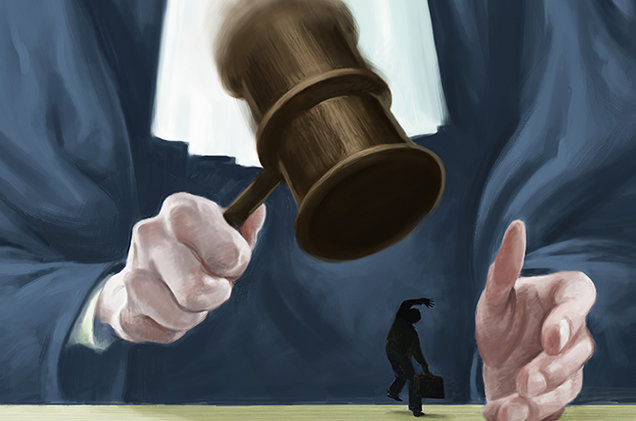Media
David Israelite Op-ed in Billboard: America’s Songwriters Deserve Better Than This

David Israelite, head of the National Music Publishers Association, argues that the Dept. of Justice's recent pre-holiday decision is tone deaf at best, disastrous at worst. The Department of Justice (DoJ) has dealt a massive blow to America's songwriters. After a two year review of the consent decrees that govern ASCAP and BMI, career lawyers who were never elected nor confirmed to their positions, led by a lawyer who previously represented Google, determined that songwriters should have even fewer rights, less control over their intellectual property and be treated more unfairly than they already are. The Department ignored the voices of copyright experts, members of Congress and thousands of songwriters and delivered a huge gift to tech companies who already benefit from egregiously low rates. When the DoJ began its review of the consent decrees, songwriters and publishers hoped for modifications and relief in the face of dramatic market changes to performance rights licensing which made it clear that fair royalty rates were not being paid. At best, we had hoped that the WWII-era decrees would be done away with to permit songwriters the same freedom to license works as other property owners enjoy. At worst, the decrees would be updated to reflect the current digital marketplace and give songwriters and publishers more flexibility to negotiate market-driven rates with global digital services. After all, the consent decrees were put in place before the transistor radio was invented. They were never meant to, nor could they envision, existing in a world of iPhones, streaming and instant access to practically all music. Unfortunately, the DoJ went the opposite direction and chose the outcome most harmful to songwriters and the creative community. The Department has determined that no changes will be made to the current decrees. And they have also now interpreted those decrees to demand that all works must be licensed on a 100 percent basis, meaning that the traditional and logical practice of fractional licensing -- or licensing only the share of a song a PRO represents -- by ASCAP and BMI will be done away with. Regardless of how one feels about the profession of songwriting and the innate right a creator has to control their creation, any legal body should be deferential to the office created to examine and advise on copyright law. That body, the U.S. Copyright Office, was asked to weigh in on the DoJ's proposed changes, and said that, "an interpretation of the consent decrees that would require these PROs to engage in 100-percent licensing presents a host of legal and policy concerns. Such an approach would seemingly vitiate important principles of copyright law, interfere with creative collaborations among songwriters, negate private contracts, and impermissibly expand the reach of the consent decrees." The defiance displayed by these career antitrust lawyers in ignoring the legal opinion of the Register of Copyright is shocking. In addition to disregarding the Copyright Office, the manner in which the decision was made and delivered was insulting to those most invested in the futures of songwriters. Members of Congress who had expressed interest in knowing the outcome of the review were apparently caught off guard and not given the chance to appeal to the Department. They were simply alerted that a determination had been made and given no recourse to reason with the DoJ. Congressman Doug Collins of Georgia's office said that the DoJ "sent an email to Congressional staff assuring that the review was not complete and that parties and stakeholders would have a chance to provide their views before the review was completed. However, reports from the meeting and DoJ's own positioning appear to indicate that DoJ has already determined what direction they will take." Additionally, Congressman Collins stated that the "Department of Justice's position is arrogance at its worst." This move also threatens transparency because while songwriters may have chosen to join one PRO, now their payments may be coming from another. And if each PRO can license an entire song, even if it only controls a small portion of it, then licensees may have the ability to license where rates are lowest in a royalty race-to-the-bottom. The DoJ does not have the protection of songwriters in their interest, so we must take this to another forum. Public opinion is powerful and the antitrust attorneys at DoJ must understand that their decisions will have a ripple effect through the fields of creativity for decades. In the coming weeks and months, it will be more important than ever to express the problems associated with the Department's declaration, which was conveniently disclosed just before the holiday weekend. As we've come to know all too well, Washington bureaucrats should not be in the business of regulating music as they are neither capable of understanding or fixing the problems they've created. We are hopeful that through our upcoming conversations, our allies in Congress who support the creative community, and ultimately the voices of those most affected, the creators themselves, we can find a path forward. Until then, there will be no justice for America's songwriters. David Israelite is the President and CEO of the National Music Publishers' Association (NMPA). Founded in 1917, NMPA is the trade association representing all American music publishers and their songwriting partners. Billboard op-ed link can be found here.
